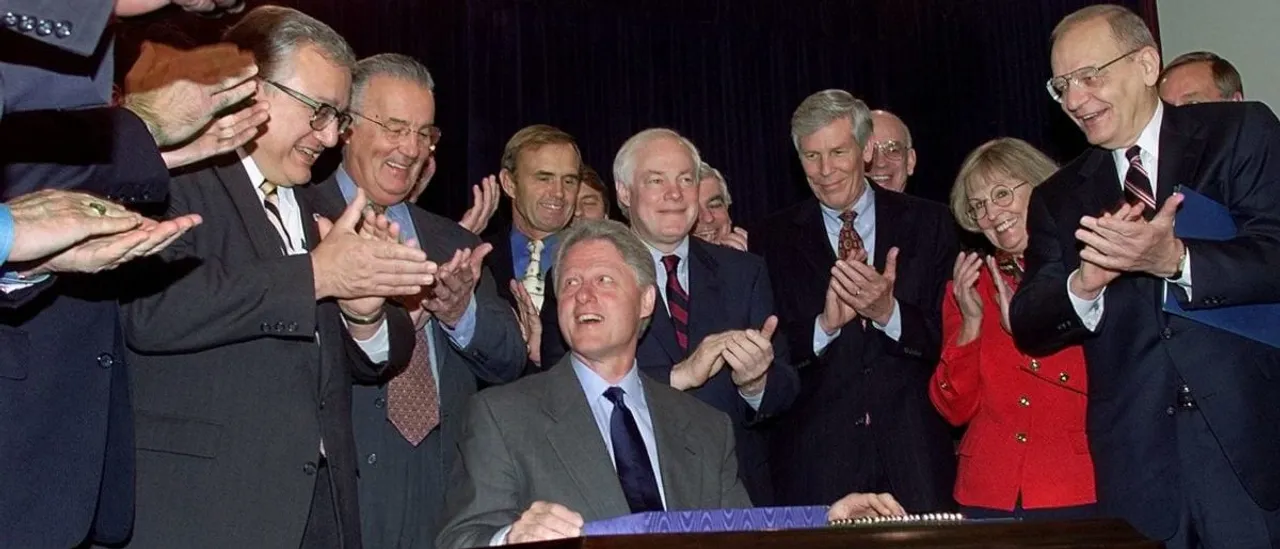Copyright dailycaller

There is a stark generational worry among 18- to 29-year-olds that they won’t be able to enjoy the same milestones in life as previous generations. If society does not correct this, we are watching the slow, painful death of Western civilization. The Harvard IOP Youth Poll from Spring 2025 reveals a shocking truth: our nation’s youngest adults do not believe they’ll be able to accumulate significant wealth or buy a home, and a historically low number of them rate having children as an essential part of their future. Less than half of Americans under the age of 35 think they’ll have kids in their life. Existential crisis. pic.twitter.com/gY3ZK7oJku — Spencer Hakimian (@SpencerHakimian) October 27, 2025 The knee-jerk reaction to this data, especially from older generations like Boomers, is to blurt out some quip about how all Gen Zers are weird and don’t conform to traditional standards. However, there is very little realization or repentance for the role they played in the cultural and economic revolution, which bred a generational disconnect around the importance of family and legacy, and the erasure of upward mobility. (Sign up for Mary Rooke’s weekly newsletter here!) One of the great promises of being an American is the ability to improve your financial situation compared to your parents. Post-Boomer generations face the harsh reality that it’s now harder to move from poor to rich, meaning the American Dream wasn’t passed down from Boomers to younger generations as it had been before. Economists investigate this by looking at something called intergenerational income elasticity, which basically measures how much your parents’ wealth determines what you’ll earn as an adult. The old trope, “Pull yourselves up by your bootstraps,” means nothing to the kids surveyed by Harvard, because by the time Boomers had their way with the economy, there weren’t bootstraps, much less boots, to pull themselves up with. There was a significant and measurable decline in upward mobility after 1980, as Boomers entered leadership roles in politics, business, and society. They shaped economic decisions that prioritized short-term gains, exacerbating the rise in intergenerational income elasticity and passing costs to future generations. This is easily seen when discussing entitlement programs like Social Security and Medicaid, which continue to be prioritized and preserved despite projections that they will add trillions to the national debt, shifting the cost of Boomers’ retirement onto younger workers and limiting their ability to save, invest, or build wealth. In the 1990s, there was an emphasis on prioritizing globalization, as evidenced by former President Bill Clinton’s signing of the North American Free Trade Agreement (NAFTA), which we now see was a massive betrayal of working-class Americans. It took good-paying, respectable jobs from middle and low-income Americans and gave them to countries overseas. Congress passed the Gramm-Leach-Bliley Act (GLBA) in 1999, which repealed regulations that had prevented mergers among commercial banks, investment firms, and insurers. The move was wildly popular at the time in both parties. It ultimately led to subprime lending and speculative bubbles that caused the 2008 crisis, driving asset prices through the roof while wage growth was stagnant, making it impossible for younger generations to afford a home. These decisions were more than just missed opportunities to uphold core principles like fiscal responsibility, limited government, free markets, and personal accountability. It was the start of what would eventually lead to the current cultural crisis highlighted in Harvard’s youth poll, showing the shocking erosion of confidence in core milestones, like buying a house, finding love, and having children. Young adults, sensing they cannot surpass their parents’ economic status, view financial security and homeownership as increasingly unattainable, which is directly correlated to their despondency for family formation. A nation cannot survive if 42 percent of the generation responsible for having children say they are barely getting by or are financially struggling. It’s no wonder that these same young adults believe that having children requires economic stability. Among that cohort, only 48 percent rank having children as important (the lowest score on having children in the history of the Harvard poll), and only 46 percent are confident they will be able to have children. The long-term drop in mobility, coupled with the cultural rot that older generations allowed to creep into society, created a feedback loop in which economic and cultural barriers deter legacy-building through children. And while not all Boomers support the sexual revolution or the rise in feminism, the effects of these cultural events were seen in how they spoke to younger generations about the burdens of having children. No solution without 1. causing injury to the aspirations and self-image of most young women by chastening them 2. doing the same to the egos and material possessions of baby boomer asset holders by taxing them 3. increasing the social status and material position of young men https://t.co/6od6pqrLRE — ib (@Indian_Bronson) October 28, 2025 Boomers’ parenting, influenced by these revolutions, often framed family as secondary to finding oneself, leading younger generations to view children as economic or emotional liabilities. As a Millennial with four children, I have many anecdotal stories of Boomers asking how my husband and I were going to afford our children. They make quips at the grocery store about having my hands full, or ask if I understand what’s causing the problem, as if to say that children themselves are the issue. I take pride in the fact that our girls are extremely well-behaved. They aren’t the ones running around screaming in public. It’s not the behavior they are pointing out, but my daughters’ actual existence. I have found the most likely cohort of Boomers to tell us how blessed we are to have four children comes from those whose own children refused to have grandchildren or suffered from infertility. Most live with the consequences of painting all children as a burden or a problem, and want to end the cycle. (ROOKE: Left-Wing Media Lets Actual Mothers Speak And It Probably Surprised Everyone) And if someone does not believe that speaking this negativity into the minds of younger generations is a serious problem, then there is a level of obtuseness here that blinds a person from being part of the solution. At its core, the Harvard poll shows that Western civilization is, and has been for a long time, on a slow march to suicide. Older generations responsible for safeguarding our inheritance have squandered it. We have one, maybe two generations to correct the trend. Follow Mary Rooke on X: @MaryRooke Sign up for Mary Rooke’s weekly newsletter here!



